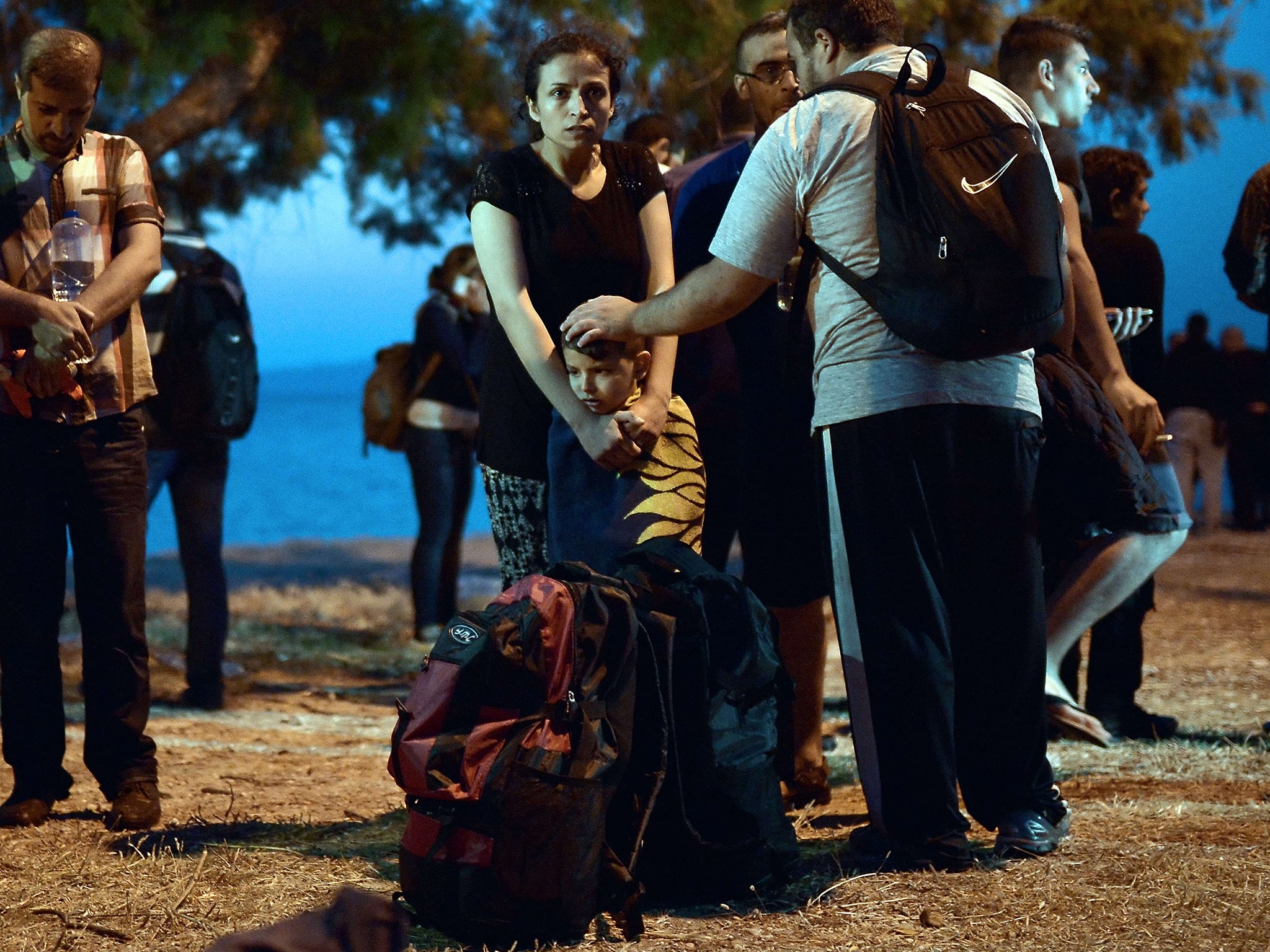The overcrowded makeshift camp, lacking bathrooms, food and blankets, is not how the refugees imagined Europe. But Greece is struggling to cope with the tide of boats arriving on its islands from neighbouring Turkey. Amid an economic crisis, the country has received more than 55,000 refugees since January, an almost tenfold increase on the 6,500 arrivals in the first five months of last year.
Lesvos, an island just five miles from the Turkish coast, has been bearing the brunt of the influx. More than 20,000 refugees – from Afghanistan, Syria, Libya and elsewhere – have arrived on its shores this year. With the peak season for migration set to begin, the island is already overwhelmed. Some 3,000 refugees are currently on Lesvos, according to the UN refugee agency UNHCR.
The island’s reception camp, close to the capital, Mytilene, has a capacity of 400 but now shelters more than 1,000 refugees waiting for the papers that will allow them to continue on to Athens.
Last month, the municipality opened an emergency camp in nearby Karatepe. It is already overcrowded. Last week, hundreds of refugees marched to the port of Mytilene, protesting against the living conditions in the camp. In Karatepe, 1,000 refugees share two toilets, one each for men and women. A hose serves as a shower. Some sleep under tarpaulin sheets, others in flimsy camping tents.
“We sleep on the floor without blankets. It’s cold at night and it’s dirty. It’s full of mosquitoes,” said a 15-year-old refugee from Kabul who arrived in Lesvos last weekend. She asked for her name to be withheld for fear of endangering her registration process. “It’s terrible here. The toilets are so dirty, they don’t have doors, and I don’t think it’s safe here for women,” she added. “My father has asthma and he can’t get a spray. If I ask the guards something, they shout at us.”
For two days, she and her family stayed in Moria, the main reception camp, before being transferred to Karatepe on 15 June. In Moria, conditions were better, she said.
She was told her papers would take another 10 days. Refugees arriving on Greek islands have to wait for registration in order to board a ship to Athens, but the surge in arrivals has created a backlog, putting a considerable strain on the island’s facilities. Public sector cuts have left local authorities understaffed and without enough funding to deal with the crisis.
The Mayor of Lesvos, Spyros Galinos, has appealed for help, describing the situation as “unmanageable”.
“People are running out of resources,” said William Spindler, a UNHCR spokesman who visited Lesvos recently. “They’re barely coping – you could say that they’re not really coping. The quantity and quality of the food aren’t very good. There’s not enough space for all of them. The conditions are very bad,” he told The Independent on Sunday.
On 17 June, lunch for the refugees at Karatepe was a single supermarket croissant. Refugees said that on previous days they had been given biscuits. Many find themselves unable to observe Ramadan, which began last week, as, without enough food to eat at night, they cannot fast in the day.
UNHCR, which has two staff members on the island, has distributed basic supplies to the most needy but, overall, Lesvos receives little outside support. While Médecins du Monde and METAction, a Greek NGO, work in the main camp of Moria, the rudimentary camp in Karatepe has been left under the supervision of a small number of coastguards.
Overseeing the food distribution, one threw her hands in the air: “There are a thousand people here. There are no doctors. We really need doctors here,” she said.
If the southern region around Mytilene gets little support, the north of Lesvos, which is closest to Turkey, receives none. Locals have stepped in to provide food and shelter for the refugees.
In the small town of Eftalou, Eric Kempson, a British artist who has lived on Lesvos for 16 years, gets up at 5am every morning to scour the sea for arriving boats. When they come ashore, he and his family bring them food, water and blankets, and provide first aid to the injured.
“We’ve gotten no help from aid agencies, not in the north. We’ve had to sleep up to 200 people sometimes at the bus stop, for three or four days, and we’ve had to feed them, with more coming in,” he said. “We need aid agencies. We’re just people. We need a doctor here; we need resources. I don’t know why they haven’t come up here, we’ve been screaming for months.”
When refugees arrive in the north of the island, they face a long walk to the camps. As Greek legislation bans buses, taxis and other drivers from taking undocumented migrants in their vehicles, the 70km road from the northern port town of Molyvos to Mytilene is lined with men, women and children making their way south.
“We walked for two days after arriving in Greece, only to find this,” said Ahmad Wali, an Afghan refugee sharing a tiny camping tent in Karatepe with his wife and three children. A former USAID driver in Kandahar, Wali made the journey to Europe after receiving threats for having worked with Americans. He was clutching a letter that recommended his immediate evacuation, which was never carried out.
Another refugee, Ahmed, 21, arrived on14 June, fleeing military conscription in Syria. Having been told by coastguards in Mytilene that there was not enough space in the camp, he and his friends were preparing to sleep in a nearby park.
“I didn’t think it would be like this,” he said, his fellow refugees nodding. “I thought we would feel human in Europe. We don’t feel like we’re human here.”

Join our commenting forum
Join thought-provoking conversations, follow other Independent readers and see their replies
Comments